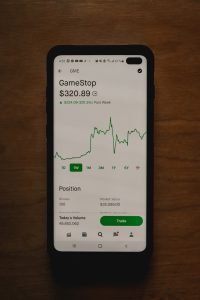The Ultimate Guide to Forex Sign Up: How to Choose the Best Broker
When it comes to forex trading, choosing the right broker is crucial. Your broker will be the one who facilitates your trades, provides you with trading platforms, and ensures that your funds are safe and secure. With so many options available in the market, it can be overwhelming to decide which broker to sign up with. In this ultimate guide, we will walk you through the factors to consider when choosing a forex broker to help you make an informed decision.
Regulation and Security:
The first and most important factor to consider when signing up with a forex broker is regulation and security. You want to ensure that your broker is regulated by a reputable financial authority. Regulatory bodies such as the Financial Conduct Authority (FCA) in the UK, the Australian Securities and Investments Commission (ASIC), or the Securities and Exchange Commission (SEC) in the US, enforce strict rules and regulations to protect investors. A regulated broker will have to adhere to these regulations, providing a higher level of security for your funds.
Trading Platforms and Tools:
The next thing to consider is the trading platform and tools offered by the broker. A good trading platform should be user-friendly, stable, and offer a wide range of technical analysis tools. Some popular trading platforms include MetaTrader 4 (MT4) and MetaTrader 5 (MT5), which are widely used by forex traders due to their advanced features. Additionally, it is worth checking if the broker offers mobile trading apps, as this will allow you to trade on the go.
Spreads and Commissions:
Forex brokers make money through spreads and commissions. The spread is the difference between the buying and selling price of a currency pair, and the commission is a fee charged by the broker for facilitating the trade. When comparing brokers, it is important to consider their spreads and commissions, as these can have a significant impact on your trading costs. Look for brokers that offer competitive spreads and low commissions, as this will allow you to maximize your profits.
Leverage and Margin:
Leverage is a tool that allows traders to control larger positions with a smaller amount of capital. It is important to understand that leverage can amplify both profits and losses. Different brokers offer different leverage ratios, so it is important to choose a broker that offers leverage that suits your trading strategy and risk tolerance. Additionally, check the margin requirements of the broker, as this will determine how much capital you need to have in your account to open and maintain positions.
Customer Support:
Good customer support is crucial when trading forex, especially if you are new to the market. Look for brokers that offer multiple channels of communication, such as phone, email, and live chat. Test their customer support by reaching out with a few questions and see how quickly and effectively they respond. A responsive and knowledgeable customer support team can make a big difference when you encounter issues or have questions about your trading account.
Educational Resources:
Forex trading is a complex and ever-evolving market. A good broker should provide educational resources to help you improve your trading skills and knowledge. Look for brokers that offer webinars, tutorials, e-books, and market analysis to help you stay informed and make better trading decisions. Additionally, some brokers offer demo accounts, allowing you to practice trading with virtual money before risking your real funds.
Deposit and Withdrawal Options:
Lastly, consider the deposit and withdrawal options provided by the broker. It is important to choose a broker that offers convenient and secure payment methods. Check if the broker supports your preferred payment method, such as credit card, bank transfer, or e-wallets. Additionally, consider the withdrawal process and any associated fees. A good broker should allow you to easily withdraw your funds without any unnecessary delays or charges.
In conclusion, choosing the best forex broker for your trading needs requires careful consideration of various factors. Ensure that the broker is regulated, offers a user-friendly trading platform, competitive spreads, and commissions, suitable leverage and margin requirements, responsive customer support, educational resources, and convenient deposit and withdrawal options. By taking the time to research and compare different brokers, you can find the one that best aligns with your trading goals and preferences.





